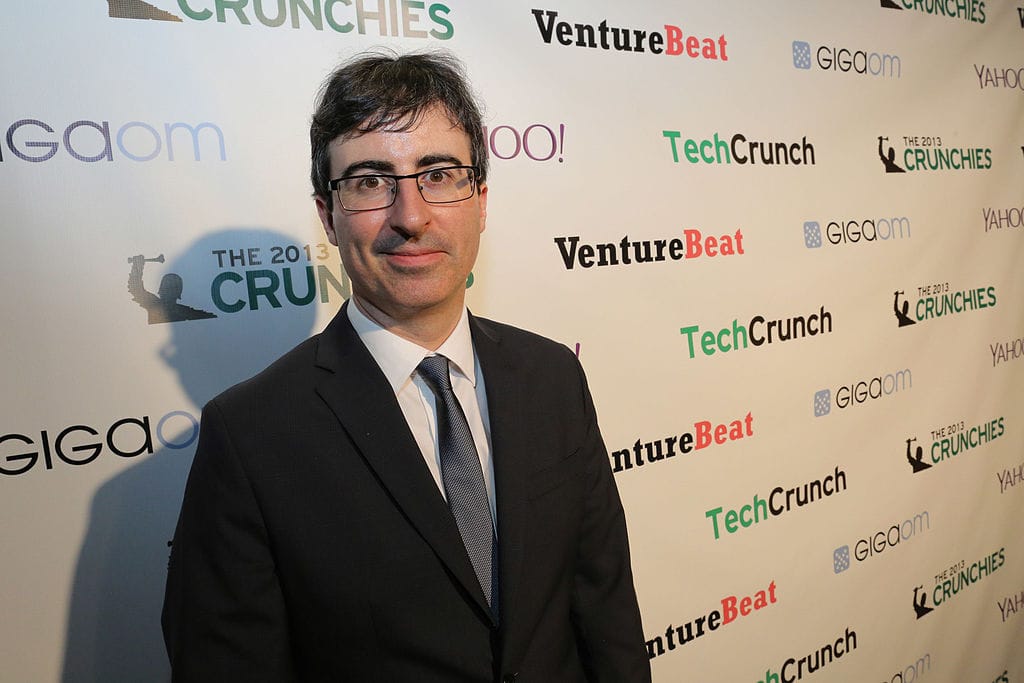Comedian Blackmails Legislators, Musk Snubs Twitter, Render Networks Connects 1 million Premises
Comedian John Oliver wants the federal government to work on federal privacy legislation.
Benjamin Kahn

April 11, 2022 – On his latest episode of “Last Week Tonight,” Comedian John Oliver threatened lawmakers that if they fail to act on federal privacy legislation, he will leak private information he purchased from data brokers.
Oliver outlined Sunday how his team went “fishing” for congresspeople through data brokers, creating a demographic group consisting of men 45 years and older in a five-mile radius of Capitol Hill, “who have previously visited sites regarding – or searched for terms including – divorce, massage, hair loss, and midlife crisis,” and then targeted that group with fake advertisements to get access to their personal information.
Oliver showed that dozens of people in this demographic clicked on their mock ads, including at least three who likely accessed them from inside the Capitol building itself.
“If you are thinking, ‘how on earth is any of this legal?’ I totally agree with you – it should not be,” Oliver said. “And if you happen to be a legislator who is feeling a little nervous right now about whether your information is in this envelope and you are terrified about what I might do with it, you might want to channel that worry into making sure that I cannot do anything.”
Oliver pointed to the Video Privacy Protection Act of 1988, which he argued was passed by Congress purely out of self-interest when members felt their privacy was in danger.
“Lo and behold, the Video Privacy and Protection Act of 1988 was passed with quite deliberate speed,” Oliver said. “So, it seems when Congress’s own privacy is at risk, they somehow find a way to act – and it also seems that they are not entirely aware of just how easy it is for anyone – and I do mean anyone – to get their personal information.”
Despite concerns from experts that individual state privacy policies could make compliance expensive and confusing for companies operating across state lines or maintain an online presence, states have largely been left to their own devices to craft policy to protect consumer privacy.
Elon Musk turns down board seat, leaves door open to buy Twitter
In an abrupt departure from his previous statement, Twitter CEO Parag Agrawal announced Sunday via Twitter that Elon Musk has declined the company’s offer to sit on the board. In his Tweet, he shared a note that had announced the news internally.
“Elon’s appointment to the board was to become officially effective [on April 9], but Elon shared that same morning that he will no longer be joining the board,” the note read. “I believe this is for the best. We have and always will value input from our shareholders whether they are on our Board or not.”
As Twitter’s single largest shareholder, it was announced on Tuesday that Musk had been offered a seat on Twitter’s board, however the position would preclude him from acquiring more than 14.9 percent of the company’s shares.
Musk’s refusal to join the board would present no such obstacle.
Render Networks has connected one million premises
Render Networks announced Monday that its network construction platform has enabled more than a million new wireless and fiber connections.
“Our entire industry continues to accelerate in line with connectivity expectations of the communities we all exist to serve,” Render CEO Sam Pratt said. “With over 1 million connections under our belt, all of us at Render have a track record in accelerating rollouts and enabling some of the best network deployment outcomes seen across the industry. It’s humbling to play a role and enable our customers to improve connectivity and equality outcomes, especially so in underserved regions, that’s what sparks our innovation and add.”
Render, which was founded in 2013, uses a proprietary geospatial construction network platform whereby clients can coordinate their telecom projects with operators and construction contractors.









Member discussion